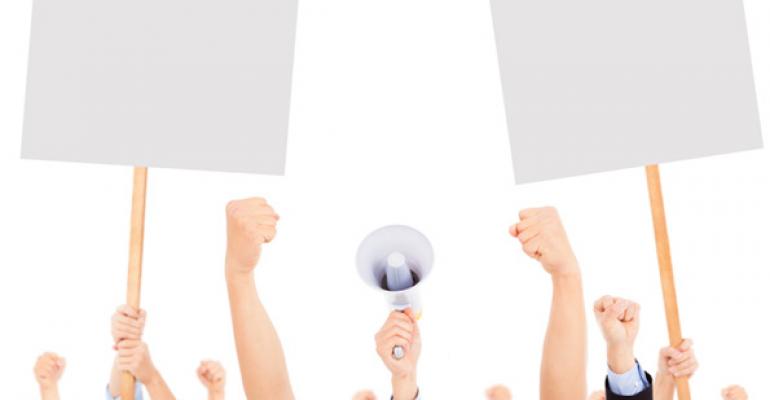
PepsiCo has announced that it is removing the artificial sweetener aspartame from Diet Pepsi, surrendering to a consortium of activist groups led by the Center for Science in the Public Interest that have long been pressuring it to do so.
This was not a decision based on science. Every major scientific body has endorsed the safety of aspartame. The decision was made to protect the Pepsi brand in the face of activist campaigns holding its image hostage and potentially contributing to declining sales.
Given the increasing frequency of these campaigns, restaurant operators should consider how their brand would hold up if it were the target of a major campaign to tarnish its public image.
Most brands’ current strategy consists of hunkering down and hoping to stay off the radar of the self-appointed agents of change. Understandably, it is difficult to employ a preventive defense to a practice yet to be attacked. But thinking a little outside the box might suggest a preemptive organizational strategy that is responsive to the Internet age of anti-corporate activism.
I suggest we take a page from the airline industry’s old playbook.
What if each major brand — only major brands ever suffer these attacks — set up a mutual defense pact to defend competitors targeted by activists. A little solidarity among restaurants could go a long way in neutralizing the effectiveness of these campaigns. Before you dismiss the idea in favor of the Schadenfreude felt when McDonald’s comes under attack, let’s explore how helping the target helps everyone else.
A little background is necessary for those who came of age in the late 20th century, where competitive pricing of airline seats seems normal. Prior to 1978, the airline industry was heavily regulated, and each route and price was set by the Civil Aeronautics Board, a former federal agency, regardless of carrier.
Labor activists were able to take advantage of this regulation by a practice called “pattern bargaining.” They would strike one major carrier until they reached an agreement, then pressure or strike other airlines to match it. The first airline singled out needed to come to heel quickly, as their competition was picking up their business and loyalty to their carrier might start to erode. And they couldn’t cut deals or drop routes that were unprofitable, given their government handlers dictating prices and routes.
So here is where it gets interesting. The major airlines came together to form a “Mutual Aid Pact.” Any “windfall profits” earned by pact members — who self-selected themselves to join —that was earned at the expense of an airline targeted by a labor strike would be redistributed back to that airline. This was one of the first major efforts at industry solidarity in response to union bargaining power. It lasted from 1959 until the airlines were deregulated in 1978.
By all accounts, the pact was from the very beginning a major success, and considered a financial savior by participating airlines. It proved effective in protecting the economic security of airlines, and gave an industry constantly threatened by activists a “defensive weapon” that allowed targeted airlines to hold out against activist demands.
While the economics of regulated airlines are different than those of the restaurant industry, the tactic used by activists to achieve their goals is the same, namely pattern targeting. Like a pack of wolves isolating a deer from the herd, activists target one company — think Service Employees International Union’s efforts against McDonald’s. Once they bring enough pressure on a company, management caves in and these strong-arm activists move on to the next target.
The weakness of this targeting strategy that is yet to be exploited would become apparent if the industry competition circled the wagons and suggested to the consumer that any mainstream practice being attacked is not unique to the target. Once the industry makes it known that it is an industry practice that is under attack, the activist leverage disappears. It is why these people don’t target an industry “brand,” and instead pick on individual players.

How has your business responded to issues raised by activists? Join the conversation in the comments below.
The spirit of the airline pact — not its economics — is the opportunity for the restaurant industry to employ. Major restaurants would more likely ignore activist campaigns if there were an explicit pact among the major brands, which elected to make common cause, agreeing that competitors would together show the public a different reality.
The mechanism to educate the public is not difficult to achieve. It would, however, take leadership. The airlines did it. Is there any reason we can’t?

